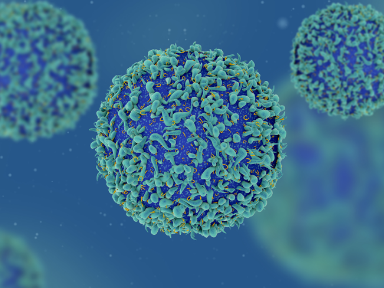worldpharmanewsJune 07, 2021
Tag: NIH , Tempol , COVID-19 , SARS-CoV-2
The experimental drug TEMPOL may be a promising oral antiviral treatment for COVID-19, suggests a study of cell cultures by researchers at the National Institutes of Health. TEMPOL can limit SARS-CoV-2 infection by impairing the activity of a viral enzyme called RNA replicase. The work was led by researchers at NIH's Eunice Kennedy Shriver National Institute of Child Health and Human Development (NICHD). The study appears in Science.
"We urgently need additional effective, accessible treatments for COVID-19," said Diana W. Bianchi, M.D., NICHD Director. "An oral drug that prevents SARS-CoV-2 from replicating would be an important tool for reducing the severity of the disease."
The study team was led by Tracey A. Rouault, M.D., head of the NICHD Section on Human Iron Metabolism. It discovered TEMPOL's effectiveness by evaluating a more basic question on how the virus uses its RNA replicase, an enzyme that allows SARS-CoV-2 to replicate its genome and make copies of itself once inside a cell.

Researchers tested whether the RNA replicase (specifically the enzyme's nsp12 subunit) requires iron-sulfur clusters for structural support. Their findings indicate that the SARS-CoV-2 RNA replicase requires two iron-sulfur clusters to function optimally. Earlier studies had mistakenly identified these iron-sulfur cluster binding sites for zinc-binding sites, likely because iron-sulfur clusters degrade easily under standard experimental conditions.
Identifying this characteristic of the RNA replicase also enables researchers to exploit a weakness in the virus. TEMPOL can degrade iron-sulfur clusters, and previous research from the Rouault Lab has shown the drug may be effective in other diseases that involve iron-sulfur clusters. In cell culture experiments with live SARS-CoV-2 virus, the study team found that the drug can inhibit viral replication.
Based on previous animal studies of TEMPOL in other diseases, the study authors noted that the TEMPOL doses used in their antiviral experiments could likely be achieved in tissues that are primary targets for the virus, such as the salivary glands and the lungs.
"Given TEMPOL's safety profile and the dosage considered therapeutic in our study, we are hopeful," said Dr. Rouault. "However, clinical studies are needed to determine if the drug is effective in patients, particularly early in the disease course when the virus begins to replicate."
The study team plans on conducting additional animal studies and will seek opportunities to evaluate TEMPOL in a clinical study of COVID-19.
Nunziata Maio, Bernard AP Lafont, Debangsu Sil, Yan Li, J Martin Bollinger Jr, Carsten Krebs, Theodore C Pierson, W Marston Linehan, Tracey A Rouault.
Fe-S cofactors in the SARS-CoV-2 RNA-dependent RNA polymerase are potential antiviral targets.
Science, 03 Jun 2021. doi: 10.1126/science.abi5224


Contact Us
Tel: (+86) 400 610 1188
WhatsApp/Telegram/Wechat: +86 13621645194
Follow Us:




 Pharma Sources Insight January 2025
Pharma Sources Insight January 2025


